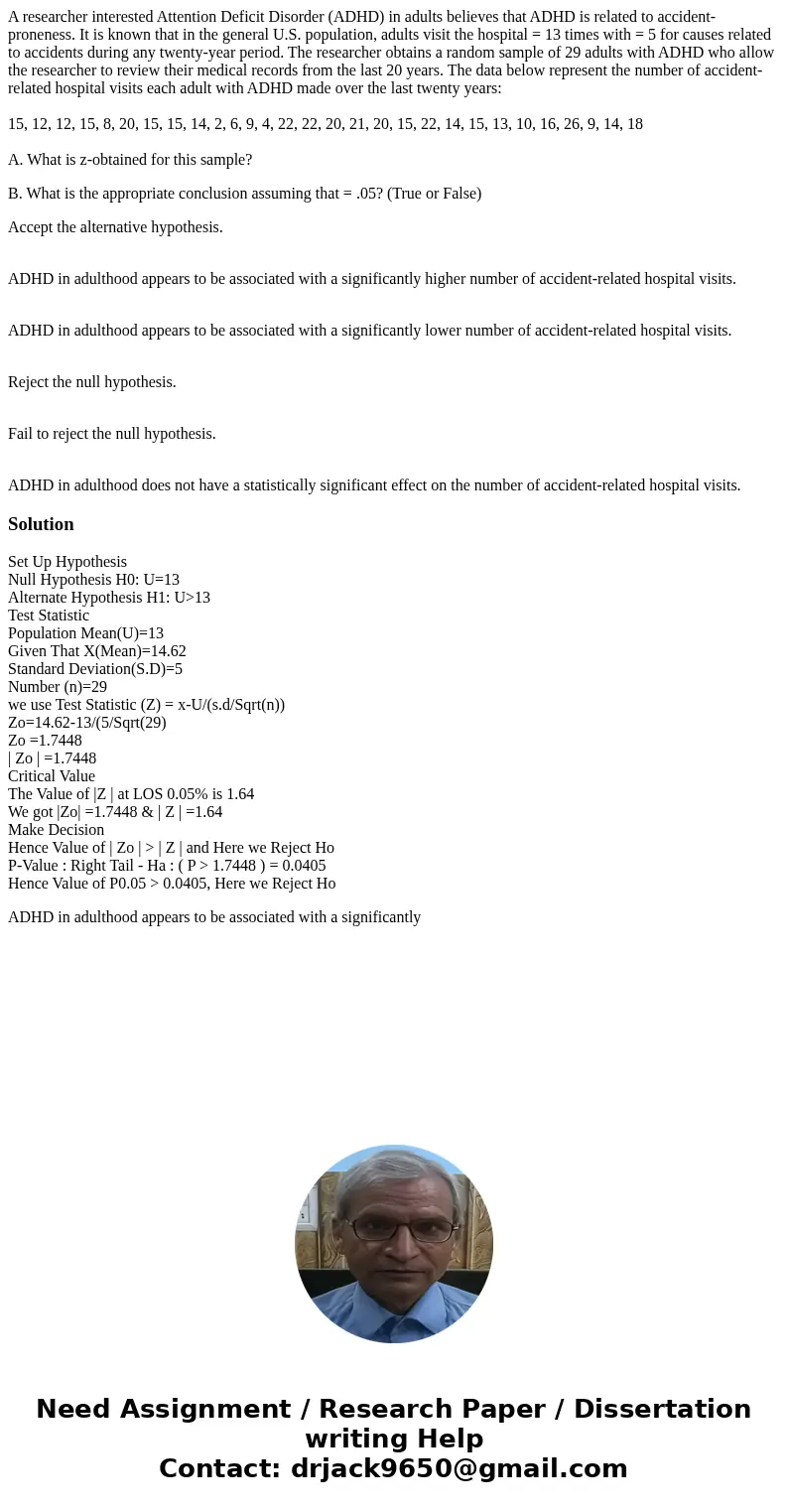A researcher interested Attention Deficit Disorder ADHD in a
A researcher interested Attention Deficit Disorder (ADHD) in adults believes that ADHD is related to accident-proneness. It is known that in the general U.S. population, adults visit the hospital = 13 times with = 5 for causes related to accidents during any twenty-year period. The researcher obtains a random sample of 29 adults with ADHD who allow the researcher to review their medical records from the last 20 years. The data below represent the number of accident-related hospital visits each adult with ADHD made over the last twenty years:
15, 12, 12, 15, 8, 20, 15, 15, 14, 2, 6, 9, 4, 22, 22, 20, 21, 20, 15, 22, 14, 15, 13, 10, 16, 26, 9, 14, 18
A. What is z-obtained for this sample?
B. What is the appropriate conclusion assuming that = .05? (True or False)
Accept the alternative hypothesis.
ADHD in adulthood appears to be associated with a significantly higher number of accident-related hospital visits.
ADHD in adulthood appears to be associated with a significantly lower number of accident-related hospital visits.
Reject the null hypothesis.
Fail to reject the null hypothesis.
ADHD in adulthood does not have a statistically significant effect on the number of accident-related hospital visits.
Solution
Set Up Hypothesis
Null Hypothesis H0: U=13
Alternate Hypothesis H1: U>13
Test Statistic
Population Mean(U)=13
Given That X(Mean)=14.62
Standard Deviation(S.D)=5
Number (n)=29
we use Test Statistic (Z) = x-U/(s.d/Sqrt(n))
Zo=14.62-13/(5/Sqrt(29)
Zo =1.7448
| Zo | =1.7448
Critical Value
The Value of |Z | at LOS 0.05% is 1.64
We got |Zo| =1.7448 & | Z | =1.64
Make Decision
Hence Value of | Zo | > | Z | and Here we Reject Ho
P-Value : Right Tail - Ha : ( P > 1.7448 ) = 0.0405
Hence Value of P0.05 > 0.0405, Here we Reject Ho
ADHD in adulthood appears to be associated with a significantly

 Homework Sourse
Homework Sourse